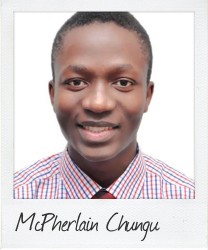“Political ‘crisis’ is a distraction from big issues”
June 13 The arrest of an opposition leader made headlines around the world, but McPherlain Chungu, 22, a Commonwealth Correspondent from Zambia now studying in India, examines whether the so-called crisis is a distraction from other serious political issues.
The arrest of an opposition leader made headlines around the world, but McPherlain Chungu, 22, a Commonwealth Correspondent from Zambia now studying in India, examines whether the so-called crisis is a distraction from other serious political issues.
When the news broke that the leader of the main opposition, Mr. Hakainde Hichilema, was brutally arrested and charged with treason for failing to give way to the presidential motorcade, the instant reaction was, “How absurd!”
Of course, the state’s authoritarian stance challenges Zambia’s cherished image of a “stable and promising democracy” in the region. Since the end of one-party rule in 1991, Zambia has had democratic elections, smooth transitions of power and minimal political tensions. But these are merely procedural aspects of a democracy. The health and substantive nature of Zambia’s democracy has come into question after this utter display of authoritarianism by the state.
Immediately after the arrest, a conference of Catholic Bishops, one of Zambia’s influential civil society groups, was held. The bishops released a strong statement criticising the state, affirming: “Our country is now all, except in designation, a dictatorship.”
This view is not unfounded considering that the state brutally arrested the opposition leader and charged him with treason, a non-bailable offence with maximum sentence of death under Zambian law. This is just for failing to give way to the presidential motorcade. However, what is worrying is that the state has not provided any evidence against Mr. Hichilema so far.
Is this a political crisis? Well, this is not the first time in Zambia that opposition leaders have been arrested, or civil society groups have been intimidated. Nor is it the first time the president arguably sought to consolidate authority by influencing state institutions. For an example one could consider the politicisation of Zambia’s state police under this current administration. Zambia has always, in the past, found ways to resolve high political tensions like these peacefully and it’s not unimaginable to think it will follow a similar course. To say that this is a political crisis is utter exaggeration and sensationalism.
It is true that the state’s actions are highly questionable, but not really surprising. At this point it is useful to look to the theoretical nature of a state, on the basis of scholar Charles Tilly’s theory of the state and power in his book “War Making and State Making as Organized Crime”. He fundamentally describes the state as an entity that “monopolizes violence” and uses it to assert its authority. What the events in Zambia show is a state that is quick to assert this authority, by whatever means necessary.
But could this be a distraction? Most likely. On the August 2016 election campaign trail, President Edgar Lungu promised to deal with the many challenges that Zambia was facing: the relatively high unemployment rate, inflation, and deteriorating economic growth. Despite Zambia’s advancement on literacy and health indexes, 64 per cent of its population still lives below the poverty line with limited access to essential public goods. Gender based violence has also been a rampant problem in the country. These are just few of the gruesome challenges that President Lungu’s administration is facing. The Zambian people have been both vocal and critical on how the state ought to handle these problems.
The story of the arrest of Mr. Hichilema has dominated public discourse in Zambia and the media (both domestic and international). This has shifted the focus from the economic failure and the Zambian government’s poor economic decisions. The shifted focus means a shifted discourse that was criticising the state. It makes sense that such a distraction could come in handy.
In an interview with the Financial Times, renowned Zambian-born economist Dambisa Moyo termed this so called ‘political crisis’ “a really big distraction when there are so many other issues”. She further elaborated on the decline in copper prices and the implications on the mining-reliant economy, and on Zambia’s increased borrowing of the U.S.D, which could prove detrimental should U.S. interest rates upsurge.
Looking at the optics, it is not a far-fetched assertion to argue that this “crisis” was a much-needed distraction for the administration at the moment. Neither does this article intend to take away the gravity of the current political situation, nor does it want to ignore the state’s authoritarian tendencies. Instead, the intent is to unearth equally important issues that seem to have been overshadowed and buried.
See a news report by McPherlain Chungu on the arrest of Hakainde Hichilema here: https://drive.google.com/file/d/0ByHV76RHwT_welV1STZ5WGdjWTg/view
photo credit: JobsForFelonsHub Handcuffs with black background via photopin (license)
……………………………………………………………………………………………………………………………………………………………………………………………………………………………………
About me: I am curious, charismatic, ambitious and determined, with keen interest in social and political issues, gender and identity politics in particular. Born and raised in Zambia, currently I am pursuing my undergraduate studies in Delhi. My dream is to make the world a place with the same standards for everyone and emphasis on mutual benefit – an ideal we must strive towards.
News blogger, movie and film fanatic and travel enthusiast. A practical idealist.
……………………………………………………………………………………………………………………………………………………………………………………………………………………………………
Opinions expressed in this article are those of the author and do not necessarily represent the views of the Commonwealth Youth Programme. Articles are published in a spirit of dialogue, respect and understanding. If you disagree, why not submit a response?
To learn more about becoming a Commonwealth Correspondent please visit: http://www.yourcommonwealth.org/submit-articles/
……………………………………………………………………………………………………………………………………………………………………………………………………………………………………




